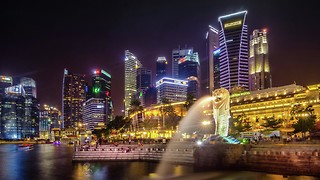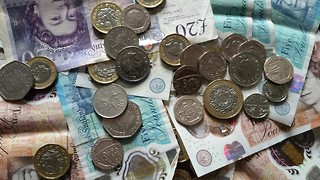A Fatal Rhetoric
Alice Tyler asks whether Obama’s speeches are addressing the real issues behind the killing of Osama Bin Laden
For American politics, the primary significance of the killing of Osama Bin Laden is a symbolic one. It doesn't need to be said that in the aftermath of September 11th, Bin Laden became a hate figure in the collective US imagination. The threat posed by terrorism was personalised, the blame pinned on al-Qaeda's most visual spokesman. And so it is that his death serves as political gold-dust for Barack Obama. Fully aware of this symbolism, the President made Bin Laden's capture his 'top priority.'
And it is poetic, to say the least, that the fulfillment of this priority has come at a moment when his popularity has apparently faced its worst suffering. The Birth Certificate Scandal is a forgotten jape of the past. Those critics who questioned the President's ability to deliver results have been silenced. And Obama has exploited this opportunity with relish. His victory speech, eloquently delivered, featured more 'I's than you can spell the word 'team' with. 'Today, at my direction, the United States launched a targeted operation against that compound in Abbottabad, Pakistan.' As if the neatly published photos of him watching the live TV feed didn't make it clear enough, Obama has been eager to insist on his hands-on involvement in this triumph.
And as the standing ovation he received at the White House dinner shows, this is doing him a world of good.
Obama's blatant self-promotion isn't the only grating aspect of his speech. So too is his exploitation of the human pain of 9/11 to validate the justice of this revenge killing, his deliberately sentimental evocation of 'the empty seat at the dinner table.' More propagandist manipulation than respectful remembrance, his speech exploits American pain while failing to acknowledge the suffering engendered in so many other parts of the world as a result of the US commitment to find Bin Laden.
Similarly exclusionary - and irresponsible - is the suggestion that this fight began with September 11th: 'the American people did not choose this fight. It came to our shores, and started with the senseless slaughter of our citizens.' The fight may not have been chosen by America's innocent civilians, but the foreign policy of its leaders didn't leave them that choice. The notion of unproblematic American patriotism that Obama uses to encourage unity is almost offensively misleading. I wonder what American - and indeed Western - Muslims have to say about the suggestion that in the aftermath of 9/11, 'no matter where we came from, what God we prayed to, or what race or ethnicity we were, we are united as one American family.'
Such narratives are problematic enough in themselves, but more irresponsible is the use of them to validate a questionable form of justice. Osama Bin Laden was a ruthless mass-murderer who deliberately attacked innocent civilians. The popular desire for revenge is expected and, I think, legitimate. But for politicians to posit such revenge ("Two fatal shots to the head and chest...or was it the leg?") as 'justice' is irresponsible.
Obama proclaimed that 'justice has been done.' Yet Andrea LeBlanc, whose husband was killed in the attacks, has asserted on behalf of September 11th Families for Peaceful Tomorrows that 'justice is achieved in the courtroom, not on the battlefield.' It seems doubtful that this performance of American supremacy will be successful in bringing about any immediate 'Peaceful Tomorrows.' Revelling in its triumph, American politics has ignored the need for self-reflection, just as it did in the immediate aftermath of 9/11 itself, and during so many conflicts before that. The killing of Osama Bin Laden will form another string in the bow that al-Qaeda points towards US foreign policy. The deaths of the victims of 9/11 have yet to serve in the making of a safer world.
Indeed, we already fear retaliation attacks. For the symbolism works both ways. That Bin Laden has been killed, rather than brought to trial, will mark him a martyr in the eyes of al-Qaeda and its followers. The resounding response to this event appears to suggest that Bin Laden's death will not take the wind out of Al-Qaeda's sails. The war on terror has caused more civilian than terrorist deaths. It has boosted support for al-Qaeda, as most likely will the martyring of its leader. This piece does not pretend to answer the question of whether Bin Laden should have been tried instead of killed. Can that question ever have a definitive answer? But a trial would have denied him the status of a martyr. And it would have made him face the families of the victims of 9/11, for whom the reality of the event renders all symbolism hollow.
Undeniably, the defeat of Osama Bin Laden will serve as a great source of hope for people worldwide. But it strikes me that Obama's propagandist revelling in the success of his killing will do little to facilitate a more responsible and self-critical approach to America's relationship with the rest of the world.
 News / Council rejects Wolfson’s planned expansion28 August 2025
News / Council rejects Wolfson’s planned expansion28 August 2025 News / Tompkins Table 2025: Trinity widens gap on Christ’s19 August 2025
News / Tompkins Table 2025: Trinity widens gap on Christ’s19 August 2025 Comment / My problem with the year abroad29 August 2025
Comment / My problem with the year abroad29 August 2025 News / ‘Out of the Ordinary’ festival takes over Cambridge 26 August 2025
News / ‘Out of the Ordinary’ festival takes over Cambridge 26 August 2025 Sport / Return to your childhood sport! 29 August 2025
Sport / Return to your childhood sport! 29 August 2025









